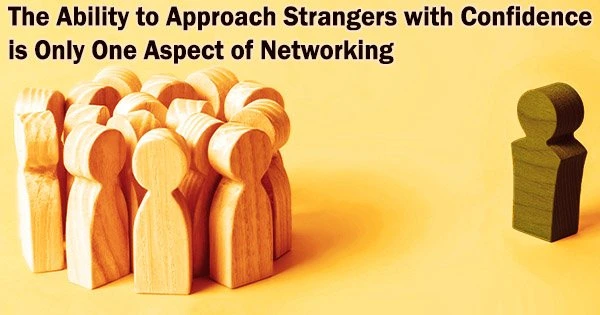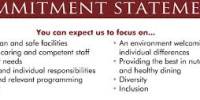It makes sense to believe that extroverts find it simpler to network and establish business partnerships. Their gregarious demeanors, ease in conversation, and enthusiasm would seem to naturally lend themselves to meeting new people and forming connections.
But is it always true that extroverts are better at networking and that introverts are more prone to struggle and feel uncomfortable?
The Right Environment
Context is an important starting point. Extroverts derive their energy from other people, so they would feel at home in a networking setting that was hopping with interesting conversations and plenty of opportunities to approach prospective new acquaintances.
But networking is not necessarily all about networking events and conferences. They are a helpful tool to help you make new friends in a safe environment or catch up with old friends in a productive way by having several people in the same place at the same time, as opposed to setting up a series of coffee catch-ups. But they are not the only way to build and nurture relationships.
Although there are alternatives to attending conferences, occasionally these gatherings must be avoided. Maybe introverts might teach others how to approach similar situations with a more deliberate, thoughtful attitude.
South African futurist Graeme Codrington is a self-confessed “off the scale” introvert. He told me that his approach to attending large events is a question of managing his energy effectively. Graeme said, “Whatever I engage in, my entire decision-making process is, ‘How much energy is this going to cost me?’”
“It actually puts me in a much better space to be deliberate about the value transfer. I’m quite deliberate about saying, is this a valuable thing? And not just valuable to me: Am I adding value? What’s the quickest, easiest way for me to add value, get value in the situation, and then get out? I’m not just there to see what happens.”
I think you listen in order to engage rather than just listen in order to respond. And so you’re trying to understand. It’s not that there isn’t small talk, but it’s more intentional to get to the value faster. We don’t like small talk unless the small talk is leading somewhere or is interesting.
Graeme Codrington
Listening with Intent
Graeme accepts that there is both an upside and a downside to this approach. It’s crucial to avoid approaching such gatherings with an overly narrow or transactional mindset, searching guest lists, and only chatting to delegates you feel are pertinent to you. However, a targeted strategy for every interaction encourages far more attentive listening and careful thought about what the other person is saying.
“As an introvert, you’re better at listening,” Graeme argues. “I think you listen in order to engage rather than just listen in order to respond. And so you’re trying to understand. It’s not that there isn’t small talk, but it’s more intentional to get to the value faster. We don’t like small talk unless the small talk is leading somewhere or is interesting.”
The value exchange of so many conference exchanges would increase right away if we gave some care to the conversational quality at events. Establishing rapport requires moving beyond the standard networking dance of “What do you do?” and elevator pitch exchange. Considered questions and active listening can support this.
Introverts Do Like People…It’s Just How Much
The tendency to generalize the distinctions between introverts and extroverts, focusing on the two extremes and presuming that the former don’t enjoy being around others, is a trap that is simple to fall into. That’s not a fair representation. We are all somewhere between the introvert and the extrovert spectrum, and many of us love striking the appropriate balance between our alone time and social interactions.
Jennifer B. Kahnweiler, Ph.D., author of The Introverted Leader, surveyed 200 people who self-identified as introverts. “Almost half said that they missed that opportunity to get to know people outside their team (during the pandemic),” she reports “Introverts do like and need people, it’s just how much. People were saying they were feeling isolated it was socialisation but also collaboration on projects. That’s how people build relationships.”
Kahnweiler’s point is supported by Jon Baker, who carried out a similar survey during the pandemic. “My survey would show that there are many introverts who enjoyed not being in the office, surrounded by people all of the time. At the same time, 45% of people were saying they were really missing connections with other people.”
“As an introvert myself, the good thing during the pandemic was the ability to deepen relationships with people I already know reaching out to them and spending quality time with them. At the same time, I missed some of the events of meeting up with people. I like being with people at times, in small amounts, in my own little way.”
Delivering on Promises
In the end, Graeme Codrington argues that interacting with an introvert might be more gratifying since they place a greater emphasis on the value exchange in dialogues. “What extroverts give you is lots of energy and excitement and promise you the world but not deliver much. And that’s fine. We love them all.
“But what introverts will do is not promise you much but actually do it. And so, in a networking environment, what I’ve been encouraged to do is to just be aware of the fact that I don’t promise much, but I do everything I promise. And I think that makes me a good networker.”
















